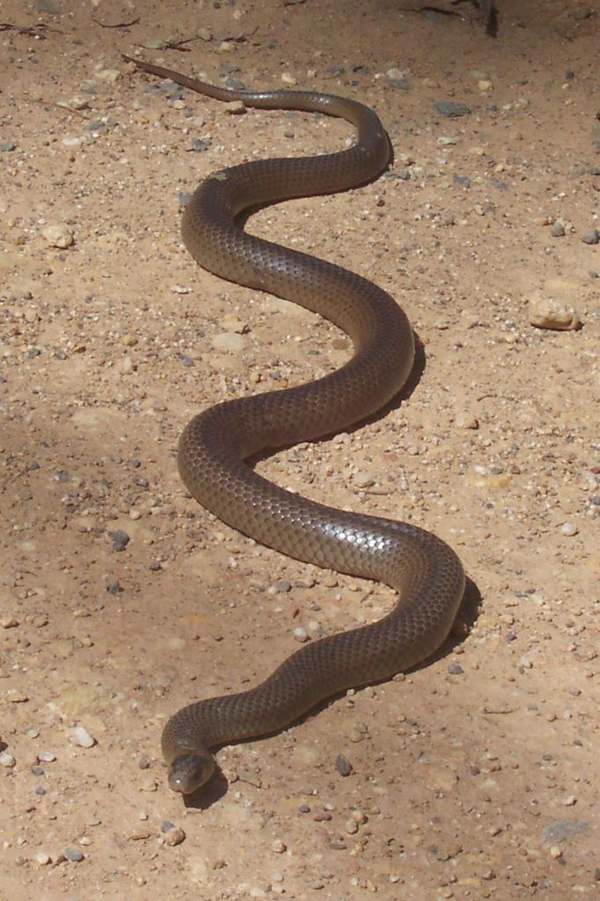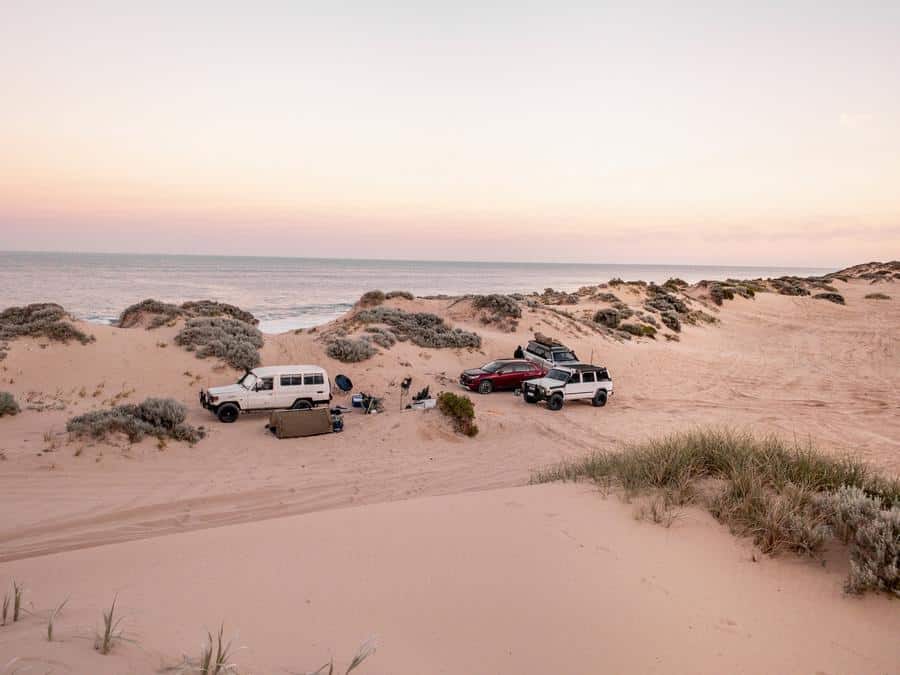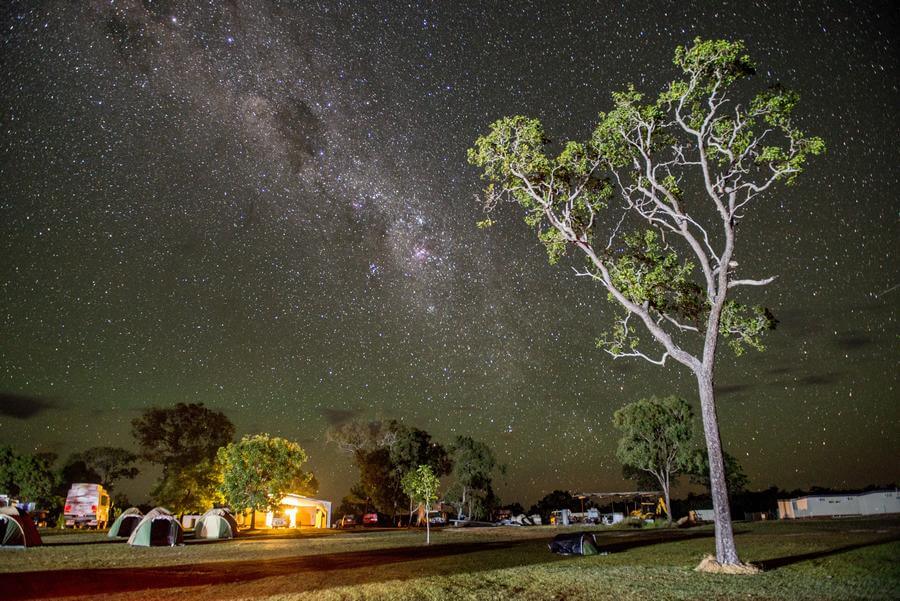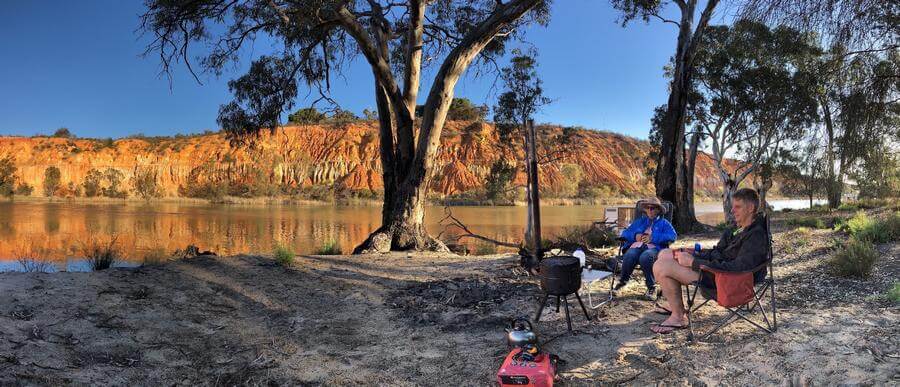Imagine this: you have a big trip planned, and you’ve always dreamt of going camping in Australia. You’ve set out to see some waterfalls, fish a little, and take a look at some wildlife, but you find yourself asking… is it safe? Australia is known for its creepy crawlies, so is it safe to go camping in Australia at the end of the day?
It is safe to go camping in Australia. No matter where you go camping, there will be dangers, whether those be snakes, bugs, wildlife interactions, thefts, or the risk of exposure. However, if you take the proper precautions, camping in Australia is, ultimately, quite safe.
In this article, I’ll discuss the risks of camping and fishing in Australia in-depth to determine if they’re a cause for concern. I’ll also provide a few safety tips to keep your mind at ease and allow for a great camping and fishing experience!
Safety Concerns Of Camping In Australia
It’s no-less safe to go camping in Australia than in other popular destinations.
One ranger at Parks Victoria states that “before you go camping this summer, it’s essential to do your research to find the right campground for you.” This research can significantly lessen the chances of any of the following dangers.
To listen to more camping tips from this ranger and her peers, you can watch the interview here:
Let’s go over some common possible dangers and assess how concerned you should be about them when camping in Australia.
Wildlife (Spiders And Snakes)
You may be concerned about wildlife, especially if you’ve heard horror stories of Australia’s deadly bugs or boxing kangaroos. However, for the most part, you’re not going to interact with these animals. Yet, like anywhere else, there is some dangerous wildlife in Australia you should be aware of.
For one, you should be on the lookout for spiders – brown recluses, specifically, as these are venomous. Yet, there’s no need to panic, as you’re not very likely to die of a brown recluse bite if you have access to medical care.
Notably, most brown recluse spider bites will heal themselves, and according to immunologist Ed Nieuwenhuys , those that don’t “may cause mild necrosis and conservative wound care seems the best therapy.”
, those that don’t “may cause mild necrosis and conservative wound care seems the best therapy.”

Treatment for all spider bites is readily available in Australia, and spiders really shouldn’t be something to skip out on a camping trip. If you’re super concerned about accessing this care, the emergency number (like the US’s 911 or the UK’s 999) in Australia is 000.
Snakes are another creature you may encounter on your camping trip in Australia. In most cases, a snake will not be the aggressor. Snakes tend to avoid entering a populated campsite, yet there’s always a chance they might, as it’s their natural habitat. If you do see one, avoid it to prevent a potentially dangerous situation.
However, to help put your mind at ease, only about 7500 people are bitten by snakes each year in the US, and about five of these cases result in death. As you can see, thanks to readily available medical care, death by snakebite is very uncommon. Moreover, it’s rather improbable that a snake will bite you in the first place.
are bitten by snakes each year in the US, and about five of these cases result in death. As you can see, thanks to readily available medical care, death by snakebite is very uncommon. Moreover, it’s rather improbable that a snake will bite you in the first place.
Stop Camping Theft
Thefts are another concern many people have when going camping. You may have bought a lot of fishing gear or a fancy new camping stovetop and, understandably, don’t want these going missing.
Unfortunately, thefts happen no matter where you are, and it’s your responsibility to keep you and your stuff safe. For starters, don’t bring anything you don’t need that holds a lot of value. This will help keep your mind at ease. It also helps to stay at a well-lit and occupied campsite.
Concerned campers might also consider purchasing motion sensors or alarms. For instance, this well-reviewed Aootek Solar Motion Sensor Light (available on Amazon.com) will light up your campsite whenever movement is detected.
In reality, thefts are highly unlikely, but they happen. Yet, staying at a populated and secured campsite and taking the proper precautions can put your mind at ease and keep you safe.

Exposure From Australia’s Climate
Campers may be worried about exposure, but Australia’s climate is quite lovely and mild. Australia has different biomes, including dessert, tropical, subtropical, and dry Mediterranean climates. All of these make for pretty enjoyable camping sites — pack lots of extra water, food, and an emergency blanket.
Exposure in Australia isn’t a cause for too much concern. Of course, taking the proper precautions and picking a campsite right for you will keep you safe.
Fishing Dangers
If you plan on doing some fishing on this trip, according to the National Outdoor Leadership School , the biggest trouble you may encounter is exposure to potential allergens or irritants, such as poison ivy, and other maladies like sunstroke, wounds, or drowning.
, the biggest trouble you may encounter is exposure to potential allergens or irritants, such as poison ivy, and other maladies like sunstroke, wounds, or drowning.
Once again, these aren’t anything that should make you call off your trip. Be aware of your surroundings, drink lots of water, wear sunscreen, have a fishing buddy, and keep a first aid kit with you. Fishing in Australia is safe if you correctly take care of yourself and your buddies.

A Quick Guide To Camping Safety In Australia
According to Australian park rangers, to help keep yourself and your camping buddies safe, you must:
- Pick out the correct campsite (which may require a reservation and fee)
- Do your research
- Be aware of snakes
- Never leave a fire unattended
You can also get gear like motion sensors and a first aid kit. Being aware of your surroundings and preparing for camping and fishing is what keeps campers safe.
Conclusion
Simply put, it’s safe to camp in Australia. There will be risks wherever you go, but being aware of these risks can help keep you secure. If you’re planning a trip to Australia, be knowledgeable about wildlife and prep your campsite to assure your safety against thefts. Happy camping!
More Pages On Camping
If you want to camp in Australia, note that camping trips can sometimes require a lot of travelling. The campsite you want to go to might be far away, or the hotel you want to stay in might be full....
Small campervans can be extremely cosy and easier to manoeuvre on the road, but they don't always have all the things you may need. So, let's talk about some smaller-sized camper vans that still have...


